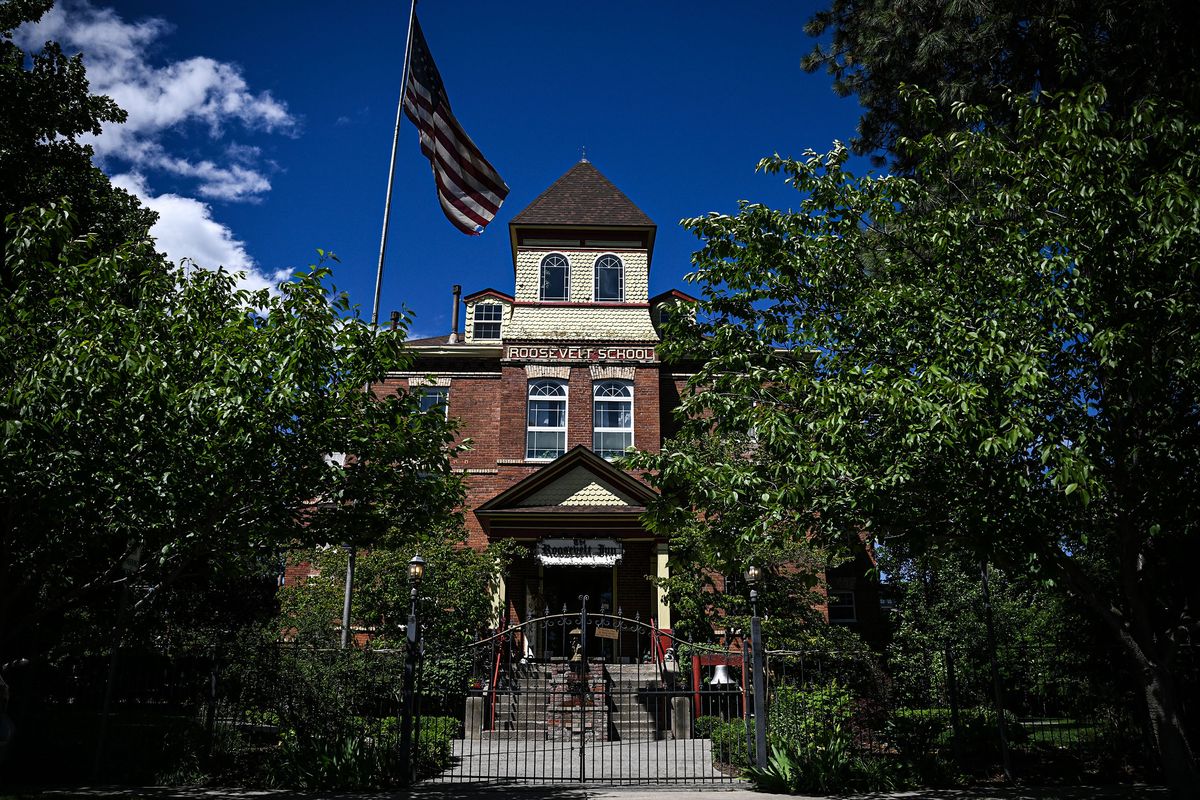Coeur d’Alene officials pass measure to protect historic buildings

In 1999, John and Tina Hough stayed at the historic bed-and-breakfast in Coeur d’Alene that was converted out of a school named for a previous visit by President Theodore Roosevelt.
Two months later, the Houghs bought the Roosevelt Inn, a 12-bedroom boutique hotel at 105 E. Wallace Ave. Each room is decorated with furniture that matches the early period of the school, which opened in 1905 and closed in 1972.
After a quarter century, including the daily cooking of custom breakfasts of bacon, sausage and cider-apple pancakes, the Houghs want someone else to operate the Roosevelt.
They have been looking for a buyer. And, they finally thought they found one: Blue Fern Development, of Redmond, Washington.
Then the Coeur d’Alene City Council last week passed a 182-day moratorium that prevents demolition, moving permits or significant alterations for buildings in the Lake City’s downtown. It excludes residential structures and buildings less than 50 years old.
But it includes those listed on the National Register of Historic Places, like the Roosevelt Inn.
“The city has literally butted in to a private sale,” said Kristyn Niver, who manages the Roosevelt for the Houghs. “They are interfering with a private sale with these mandates.”
City officials began discussing the measure as a way to preserve not only the Roosevelt, but to create guidelines that all developers must follow whenever they propose demolishing old Coeur d’Alene buildings to erect new structures, City Councilman Dan Gookin said.
“There is none,” Gookin said of the previous process. “It’s $30, and you can tear down anything you own.”
However, the measure gives city officials time to work out the details.
“The thing about our process now is that developers may be unaware of what they’re demolishing. Blue Fern had no idea. Once they found out, they were appalled,” Gookin said. “The goal is not to prohibit development but to help people recognize our historic places.”
Mayor Jim Hammond said he supported the City Council’s vote last week to a point.
“We should be revisiting the demolition process but not at the expense of private property rights,” Hammond said. “If you don’t want that building torn down, then buy the building.
“If you keep me from selling my property to someone who wants to demolish it, then you restricted my rights as a property owner.”
Benjamin Paulus, CEO of Blue Fern Development, said he and city workers worked closely to achieve the “best case scenario.”
Paulus said his company hopes to move ahead with the project but does not intend to demolish the Roosevelt. The current plan is to build townhomes around the historic building.
Walter Burns, chair of the city’s Historic Preservation Commission, worked with Gookin to advocate for the new restrictions.
“There is so much development pressure going on here right now,” Burns said. “It’s going on in a lot of places, but we are feeling the pinch.”
The city years ago restricted developers from building anything taller than 220 feet. But Burns and Gookin said they are also looking at updating those rules.
A view from the bell tower of the Roosevelt once provided a commanding view of Lake Coeur d’Alene. Now it mostly provides a view of the Coeur d’Alene Resort and its parking garage.
“Walter and I are working on limiting the height of construction on Sherman Avenue between Second and about Sixth Street,” Gookin said. “Because there is no downtown Coeur d’Alene without Sherman Avenue.”
In Spokane, if developers want to take down a registered historic property, they need a “certificate of appropriateness” that must come from the Spokane City-County Historic Preservation Office.
While Burns said he’s not advocating for a formal approval step for developers, he does want something in place that informs builders about the history of buildings before they proceed.
“The steps we’re taking now with the demolition permit process, etc., are a step in that direction,” Burns said. “Right now, there’s nothing like that in place, nor are there any immediate plans for that to happen. Spokane and northern Idaho are very different animals in that sense.”
Another Coeur d’Alene project that has garnered much attention is the AC Coeur d’Alene, a six-story Marriott-brand hotel which recently won planning approval. That 141-room hotel would be built on what is now a mostly vacant lot at 602 E. Sherman Ave.
Burns said he does not oppose the AC Coeur d’Alene but said the city should still revisit the height requirement that’s designed to preserve lake views.
“That building can be built by right. It meets basic zoning criteria for that property,” Burns said. “Personally, I don’t think it’s a bad deal. I think they’ve made some effort to make it an attractive building.
“The concern, if we go much further in developing downtown, we’re going to be losing a lot of character.”
Coeur d’Alene resident John Snyder, who has lived in the Lake City since 1979, was visiting the Roosevelt on Monday. He said he supports the city’s effort to protect properties like it.
“This is part of our community,” Snyder said. “No. 1, it’s a piece of art. No. 2, the history is amazing.”
Jeff Wallace, 64, a local minister and handyman, does work for the Houghs at the Roosevelt.
Wallace said he, too, supports the moratorium and any effort to preserve Coeur d’Alene.
“In this town, there is so much history,” Wallace said. “I’ve seen all the changes. But you’ve got to stop the high rises.”
Wallace, who has lived in the Lake City since the same year the Houghs bought the Roosevelt, said he hopes the city continues to make rules that protect the integrity of neighborhoods.
“But it’s not good for John and Tina” Hough, Wallace said of the new mandate. “They’ve been here 25 years. They want to retire.”